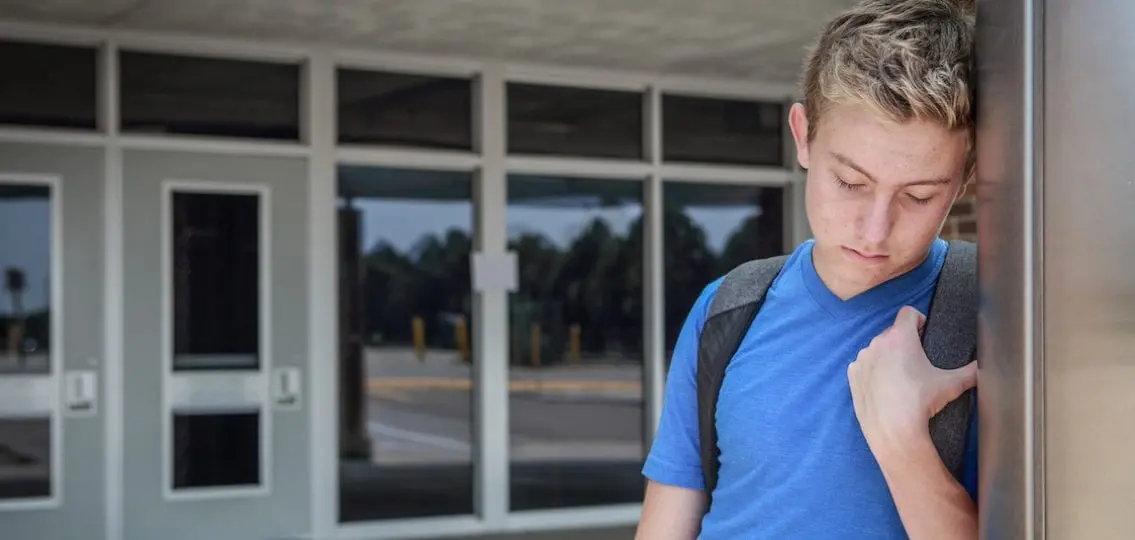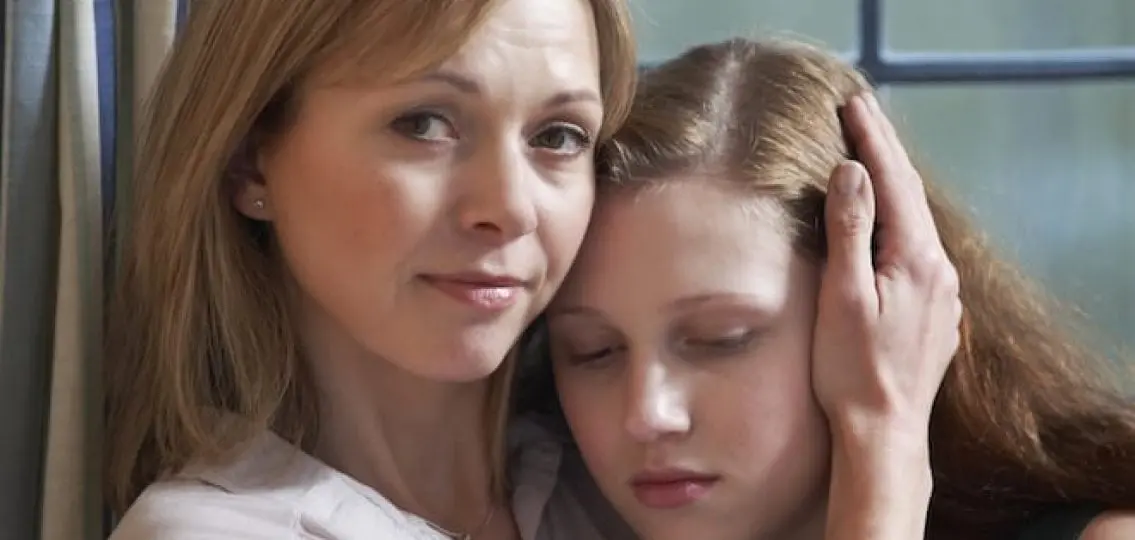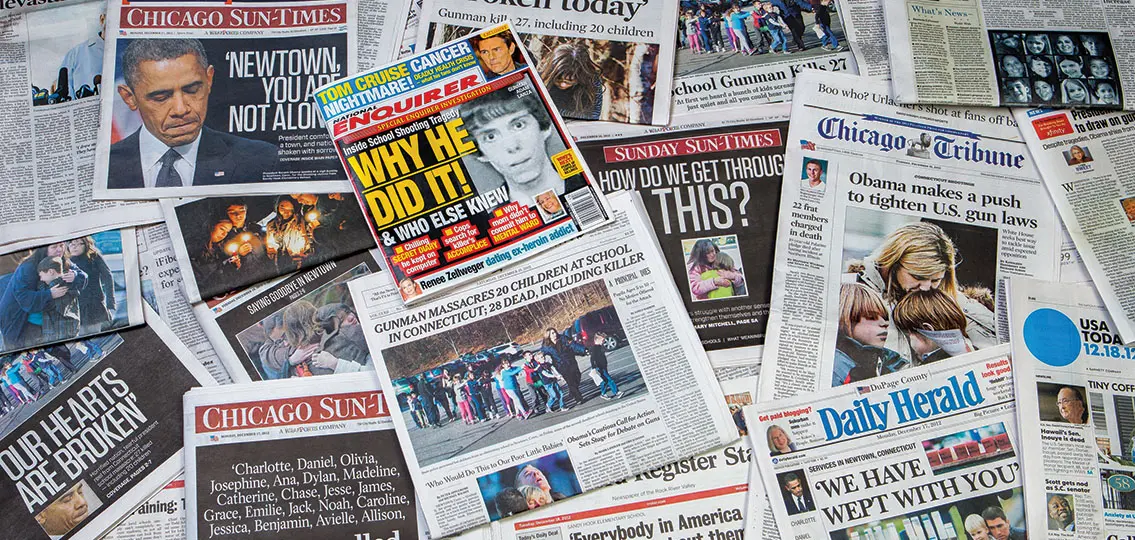The fire alarm went off during my psychology class on the fourth floor. I saw the flash of terror on Mrs. S.’s face—she masked it in seconds, but I caught it, and my heart dropped into my stomach. My peers went suddenly rigid, nobody standing to line up at the door, all eyes on Mrs. S. in hopes of direction.

An Unexpected Drill
Normally, when the alarm goes off during school, we cheer. It means a fire drill: the perfect distraction, a break from routine. But that day, only eerie silence accompanied the blaring of the alarm. A drill wasn’t on the schedule, Mrs. S. told us.
It was exactly one week after the Parkland shooting. We’d seen the Snapchat videos capturing the sounds of gunshots, bullets hitting a Chromebook as students sat in the corner of a classroom, and students filing out of the building surrounded by policemen carrying machine guns. And we all knew Parkland had started with a false fire alarm.
One kid broke the silence: “Do we stay or go?”
“I think we should stay.”
“No, let’s go.”
“What if it’s a real fire?”
“What if it’s not?”
Mrs. S. silenced us. “We’re going. C’mon, line up.” I could detect the falsity in Mrs. S.’s confidence. “Nothing’s going on,” she said. “Let’s just hurry and get outside. Quiet in the hallways.”
She’s being too positive, I thought. I wanted to stay. If there was a shooter, we’d have no chance of making it safely outside from all the way up on the fourth floor. We should barricade the door and hide in the corner. That’s what most of the kids who survived Parkland did. But Mrs. S. had spoken, so we obeyed.
The Glory Days of the ’80s
Over break, my grandparents talked, as they do a lot, about their teenage years being the best time to grow up.
“Oh, was it the time to be alive,” my grandfather said. “Things were simpler. We did the jitterbug, the music was beautiful, there was class.” He went on about the American Songbook and how we ought to be listening to his kind of music.
My parents hold steadfast to the ’80s being the best decade. From the way they talk, I have this scene painted in my mind: kids running around outside, shouting and laughing. Adults sitting on lawn chairs clinking beers and chatting as “Africa” by Toto echoes in the background. High schoolers riding down the street in the back of a pickup truck laughing and breathing fresh air, with Bruce Springsteen blaring from the speakers. Not a care in the world, nothing on their minds.
No matter how off my imagination is, I’m sure the ’80s were a simpler time. High schoolers then had what they had: the shoes in the store, the food in the fridge, the three channels on TV. Their music was filled with stories and soul. They weren’t bound to an iPhone, computer, or a talking watch. They never had something constantly in their pocket or grasped in their hand—that always gets me—their hands were free. I always try to imagine that—the feeling of being free.
Living Through a Dark Time
In Mrs. S.’s room, panicked murmurs filled the air as kids headed towards the door.
“Are you taking your phone?”
“I don’t know.”
“Leave all your stuff.”
“I’m texting my mom.”
My friend Casey had tears in her eyes. My heart pounded, and my hand gripped my phone as we walked silently into the hallway and joined the sea of students flowing down the staircase. The building held its breath until we made it outside. Only later did we find out that it was a fire alarm malfunction.
I feel like everyone stands by their own childhood years as the best time to grow up—except kids my age.
I don’t have many friends who think we’ve hit the jackpot on eras. But, if my grandparents and parents talk about their decades today so fondly, does that mean that one day I’ll preach to my kids about my own teenage years while they’re wishing they grew up in a different time? It’s possible.
It’s possible that compared to today, the future will be so unrecognizably electronic and complicated and violent that these years will seem like a golden age. Or maybe the negative memories will fade in my mind, and my teenage years will become the good ol’ days.
But, something tells me that, no, I won’t be preaching about this period to my kids, and they won’t be daydreaming of scenes from 2019 like I do with the 1980s. I think this period will remain a darker time in our history. We have technology that no one yet knows how to limit and a shooting epidemic that no one seems willing to do anything about.
Individual rights in America seem to be endangered, and the adults around me seem distraught and tired. So many negative circumstances are overlapping at once, almost like an eclipse—a rare period of darkness caused by the coincidental alignment of so many random factors.

It’s been more than a year since the Parkland shooting.
I still jump in my seat in reaction to a loud noise. All classes have escape route plans. In my biology class, three students are assigned to breaking the window, five are assigned to barricading the door, and the wrestler in the class is assigned to taking out a shooter from below while our teacher hits him over the head, should he enter the room. I still measure in my mind who would be targeted first should a shooter enter each of my classrooms. We’re still on heightened alert in the hallways. We still have active shooter drills once a quarter.
What a time to be alive.




